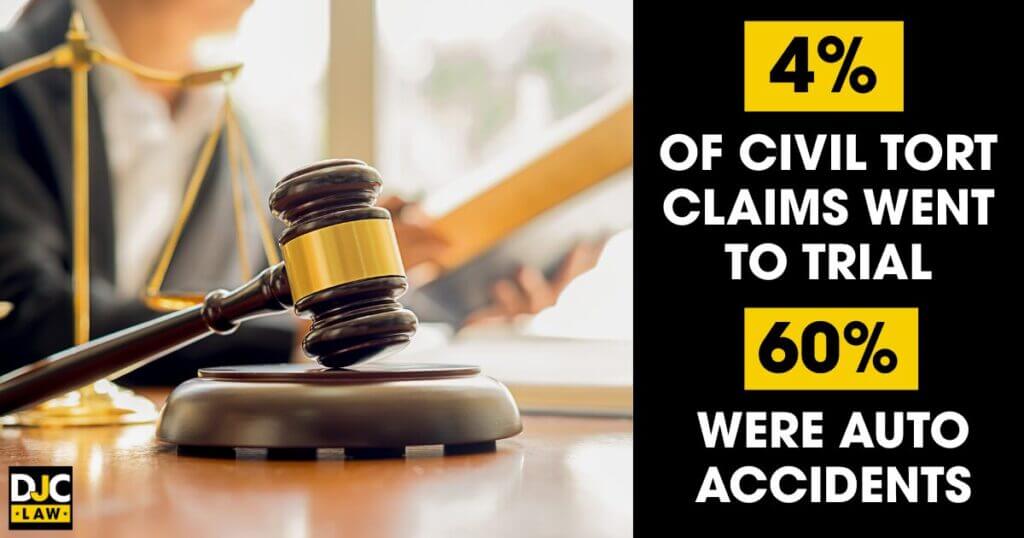When a loved one dies in a fatal car accident due to driver negligence, Texas law provides legal avenues to seek justice and financial compensation—find out more.
Who Can File a Wrongful Death Lawsuit?
Under Texas Civil Practice and Remedies Code §71.004, the following individuals may file a wrongful death claim:
- Spouse of the deceased
- Children, including legally adopted children
- Parents of the deceased
If none of these parties file a claim within three months of the death, the estate’s representative may pursue legal action.
Establishing Negligence in a Fatal Car Accident
To succeed in a wrongful death claim, you or your wrongful death attorney must prove the following elements:
- Duty of Care – The defendant had a legal duty to act responsibly.
- Breach of Duty – The defendant violated that duty through negligent or reckless actions.
- Causation – The breach directly caused the fatal accident.
- Damages – The family suffered measurable losses due to the death.
Compensation Available in a Wrongful Death Lawsuit
While no amount of money can replace a life, Texas law allows families to pursue compensation through a wrongful death lawsuit to help ease the financial burden and acknowledge their profound loss. The damages available in these cases can ensure the family left behind have the resources to move forward. You may be eligible for some or all the following types of compensation.
| Type of Damages | Examples |
|---|---|
| Economic | Medical bills, funeral costs, lost wages, loss of financial support |
| Non-Economic | Grief, loss of companionship, loss of parental guidance |
| Punitive | Awarded for egregious or intentional misconduct |
| Survival Action | Pain and suffering before death, medical expenses between injury and death |
Funeral and Burial Costs
Funeral and burial expenses can be unexpectedly high, placing an immediate financial strain on grieving families. A wrongful death claim can help recover the costs of funeral services, cremation, burial plots, caskets, and memorial ceremonies, ensuring families can honor a loved one without suffering financial hardship.
Loss of the Deceased’s Income and Future Earnings
If the deceased family member provided financial support, a sudden passing can leave dependents struggling. Compensation can include wages lost between the accident and death and projected future earnings the individual would have provided over their lifetime. DJC Law collaborates with economic specialists in this calculation, considering factors such as age, occupation, education, and career trajectory to determine the long-term financial impact.
Emotional Pain and Suffering
Losing a loved one is not just a financial hardship—it is an immense emotional burden. Texas law recognizes the deep grief, mental anguish, and suffering family members endure after an untimely death. Compensation for emotional pain and suffering acknowledges this trauma and provides some measure of justice for the family’s ongoing hardship.
Loss of Companionship, Love, and Guidance
When a spouse, parent, or child is taken too soon, their absence leaves an irreplaceable void. Surviving spouses may seek compensation for losing love, companionship, and emotional support. Children can also be awarded damages for losing parental guidance, nurturing, and instruction they would have received throughout their lives. These intangible losses are profoundly personal but can significantly impact a family’s future.
Medical Expenses Related to the Accident Before Death
In cases where the deceased received medical treatment before passing, families may be left with substantial medical bills. Compensation can cover emergency care, surgeries, hospital stays, medication, and other treatments the victim underwent due to the accident. These expenses can accumulate quickly and should not fall on the family’s shoulders.
Criminal vs. Civil Cases in Fatal Car Accidents

When a fatal car accident occurs, there are often two separate legal processes that come into play: criminal proceedings and civil litigation. Only about 1 to 4% of civil wrongful death claims go to trial, with the vast majority are resolved through settlements. According to Bureau of Justice Statistics, 4% of civil tort claims went to trial, with nearly 60% of those involving auto accidents.
Criminal Cases
In criminal cases, the state prosecutes the at-fault driver for offenses such as vehicular manslaughter or DUI homicide. These charges punish negligence and reckless behavior that endangers public safety. The goal here is to hold the driver accountable and deter similar conduct in the future. Criminal cases require proof beyond a reasonable doubt, meaning the standard of evidence is very high, but financial compensation is achieved through filing a case in civil court.
Civil Cases
Conversely, a wrongful death claim is a civil action brought by the victim’s family. This lawsuit is not about punishing the driver; instead, it focuses on obtaining financial compensation for the losses suffered by the family. These losses can include funeral expenses, lost future earnings, emotional distress, and loss of companionship. The standard of proof in civil cases is lower—typically a preponderance of the evidence—which often makes it a separate and distinct process from any criminal trial.
It’s important to understand a criminal case does not automatically guarantee a successful wrongful death claim, and vice versa. Even if a driver is acquitted criminally, the family may still have a strong civil case to secure the necessary compensation. At DJC Law, we specialize in wrongful death claims for the families and loved ones left behind. We work as staunch advocates to ensure that every aspect of your loss is addressed at the negotiation table or courtroom.
Survival Action Claims: Seeking Justice for the Deceased
A survival action is separate from a wrongful death lawsuit and is governed by Texas Civil Practice and Remedies Code §71.021. It allows the deceased’s estate to recover damages the victim could have claimed had they survived, including:
- Pain and suffering before death
- Medical expenses incurred before passing
- Lost wages between injury and death
This may be the appropriate action to take if the victim survived the car accident but passed away weeks later as a direct result of his or her injuries.
Can I File a Survival Action and a Wrongful Death Case Simultaneously?
Yes, you can file a wrongful death claim and a survival action in Texas, as they serve different legal purposes.
- Wrongful Death Claim – the deceased’s surviving spouse, children, or parents bring this lawsuit to recover damages for their losses, such as lost financial support, emotional suffering, and loss of companionship.
- Survival Action – This claim is filed on behalf of the deceased’s estate and is a continuation of any personal injury claim the deceased could have filed had they survived. It allows recovery for damages such as medical expenses, lost wages, pain and suffering the deceased experienced before death, and funeral costs. The compensation awarded goes to the estate and is distributed according to the deceased’s will or Texas intestacy laws.
Both types of claims can be pursued simultaneously but require separate legal strategies. It is highly recommended that you engage a fatal car accident lawyer to manage the process. DJC Law can help you navigate both actions to ensure your family receives the full compensation available under Texas law.
Time Limits for Filing a Wrongful Death Claim in Texas
The statute of limitations for wrongful death claims in Texas is two years from the date of death. Failing to file within this time may result in losing the right to seek compensation. It is essential to act as soon as possible when filing a claim. Critical evidence to support a wrongful death claim could be lost unless it is gathered and preserved, affecting the ability to achieve justice.
Why Legal Representation Matters in Wrongful Death Cases
An experienced personal injury attorney or wrongful death lawyer can help:
- Investigate the accident thoroughly
- Gather and preserve critical evidence
- Negotiate with insurance companies
- Represent you in court, if necessary
Get Your Justice with DJC Law
At DJC Law, we know that no amount of compensation can make up for the tragic loss of a loved one—but justice still matters. Holding negligent parties accountable can allow the family to gain financial stability to move forward. With a 99 percent success rate at trial, we don’t back down when the stakes are high—we fight aggressively to secure the full compensation you deserve. If you’re facing the unimaginable, you don’t have to do it alone. Call us today for a free consultation at 888-853-8169.



